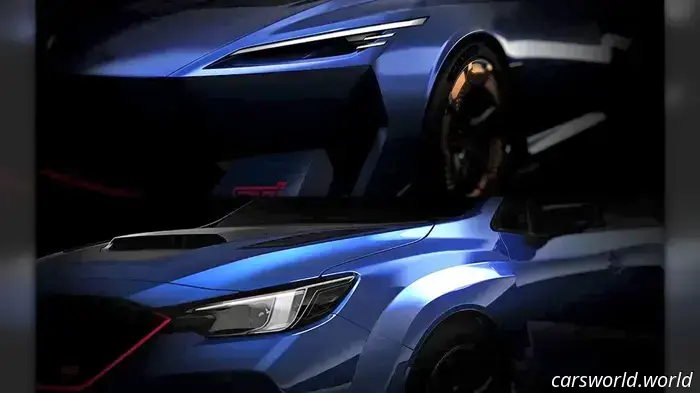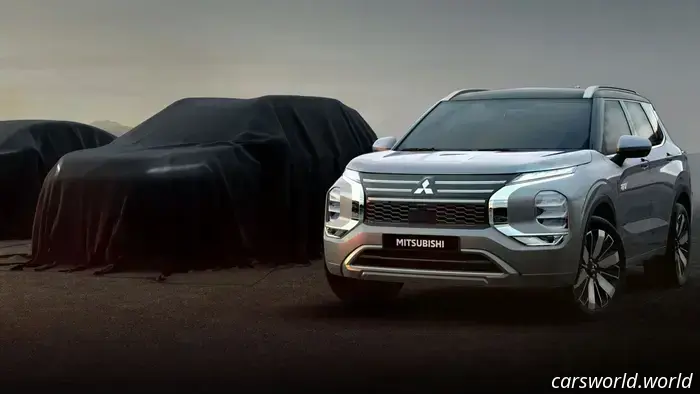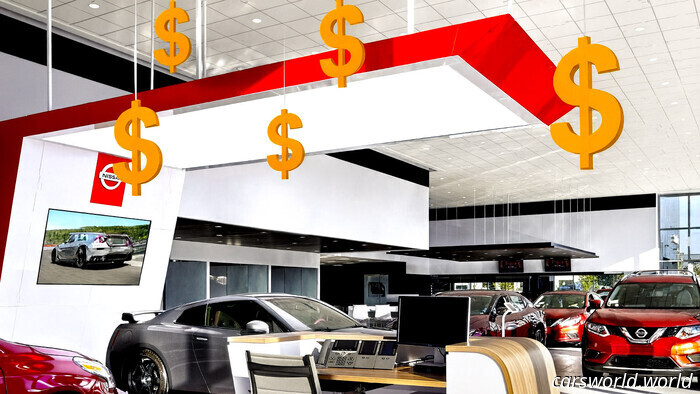
Recent data reveals that average transaction prices have reached an unprecedented level, largely due to robust sales of electric vehicles (EVs) and increased demand for luxury models, leaving more budget-conscious buyers out of the market. Last month, the average transaction price reached a record $50,080, reflecting a 3.6% increase compared to the previous year and crossing the $50,000 mark for the first time. This surge in prices is attributed to strong sales of EVs and luxury cars. Kelly Blue Book (KBB) highlights that "new-vehicle prices have been steadily increasing for over a year, with the acceleration in recent months." The average transaction price increased by 2.1% from August and 3.6% from the same month last year. Additionally, average manufacturer suggested retail prices (MSRPs) also set a new record at $52,183, marking a 4.2% rise compared to the previous year. The surge in numbers may be partly due to a rush on tax credits for EVs, with KBB estimating that 11.6% of last month’s sales were electric vehicles, also a record. The average transaction price for an EV was $58,124. It's anticipated that sales may decline following the removal of the clean vehicle tax credit, although automakers have started offering substantial incentives themselves. KBB pointed out that automakers allocated 7.4% of average transaction prices toward incentives, approximately $3,700. This figure represents the highest percentage seen this year and has slightly increased from 7.2% in August, maintaining parity with the 7.3% rate from September 2024. Tata, the owner of Jaguar Land Rover, reported the highest average transaction price at $102,096 last month, followed by Mercedes at $75,700 and BMW at $69,924. In contrast, Subaru had the lowest average transaction price at $36,092, just ahead of the Renault-Nissan-Mitsubishi Alliance, which recorded $36,547. Erin Keating, executive analyst at Cox Automotive, remarked, “Prices tend to rise over time, and today’s market is a clear indication of that. While many affordable options exist, numerous price-sensitive buyers are opting to either stay inactive or explore the used-vehicle market.” Consequently, the market is being largely supported by wealthier households with access to capital and favorable loan rates, thereby sustaining the higher end of the market. Keating also mentioned that while tariffs are contributing to rising costs, the primary driver of September’s pricing trends was the favorable mix of EVs and luxury vehicles pushing the new-vehicle average transaction price to new heights.
A hands-free tailgate reportedly activated at an unfortunate moment, resulting in serious injuries to one woman.
A lawsuit claims Volvo is responsible for a tailgate malfunction that caused these injuries.
The plaintiff alleges that a passing dog activated the hands-free tailgate sensor.
She also holds the vehicle’s driver, a Volvo employee and brand ambassador, accountable.
Volvo has established a strong reputation for safety, yet a recent lawsuit indicates that even the most diligent automaker can be caught off guard.
A woman from New Jersey is suing the Swedish automaker for negligence, claiming a malfunctioning tailgate sensor caused serious head injuries, seemingly triggered by a dog that passed by.
The incident occurred during a hiking trip in October 2023, but the lawsuit was not filed until October 2025 in New Jersey Superior Court for Ocean County. As per the complaint, Megan Kohr was standing behind an unspecified Volvo model when a dog ran under the vehicle.
Dog Activates Sensor
The dog is said to have activated the motion sensor located beneath the bumper, leading the power tailgate to hit Kohr on the head. The lawsuit claims that the incident resulted in “severe, serious, and permanent injuries.”
Kohr’s legal team contends that Volvo’s hands-free system lacked sufficient safeguards to prevent unintended activation and did not include an adequate safety reversal function upon impact, a feature expected in modern powered systems.
Partner and Driver Also Sued
According to the complaint, Kohr “suffered great pain and anguish,” resulting in her being “disabled and unable to manage her necessary affairs and business.” She is seeking compensation for medical expenses, lost income, and long-term pain.
In addition to Volvo Car USA, Kohr has included her hiking partner and the dog’s owner, Jennifer Henry, as a co-defendant, along with the vehicle’s driver, who is also a Volvo employee and brand ambassador. The company has opted to remain silent for now.
A Useful Feature Becomes a Liability
Hands-free tailgates were designed as a convenient feature, allowing users to open or close the rear hatch by simply moving their foot underneath the bumper—especially useful when carrying groceries or luggage. This system is featured in several Volvo models, including the XC60, XC90, EX90, and V90 Cross Country, available in the US market.
Interestingly, Volvo recently issued a recall for the EX90 due to defective tailgate components from a supplier that could cause sudden failures. The recall affects 1,119 units of the electric SUV manufactured between April 2024 and February 2025, which is unrelated to Kohr’s case.
Ultimately, it will be left to the court to determine whether a faulty sensor, human error, or mere bad luck led to an incident that transformed a supposedly helpful feature into another safety statistic.
Sources: Law, Autoblog



Other articles
 This Subtle Porsche 911 May Be Concealing a 701 HP Secret | Carscoops
A discreet new performance vehicle is on the way, combining Porsche’s 700 hp hybrid technology with understated aesthetics and classic Touring appeal.
This Subtle Porsche 911 May Be Concealing a 701 HP Secret | Carscoops
A discreet new performance vehicle is on the way, combining Porsche’s 700 hp hybrid technology with understated aesthetics and classic Touring appeal.
 Subaru has hinted at a return of the STI with two new hatchback models.
Subaru announced that the WRX STI will make a comeback in an electrified form. It will showcase two electrified performance concepts at the Japan Mobility Show.
Subaru has hinted at a return of the STI with two new hatchback models.
Subaru announced that the WRX STI will make a comeback in an electrified form. It will showcase two electrified performance concepts at the Japan Mobility Show.
 Are your cowboy jeans too snug? Ford’s Belt Truckle will ensure your truck keys are secure.
Whether you're an authentic cowboy or simply enjoy Western-themed cosplay, Ford's Belt Truckle offers an innovative answer to a specific need.
Are your cowboy jeans too snug? Ford’s Belt Truckle will ensure your truck keys are secure.
Whether you're an authentic cowboy or simply enjoy Western-themed cosplay, Ford's Belt Truckle offers an innovative answer to a specific need.
 Stellantis Invests $13 Billion to Revitalize Jeep and Dodge in the U.S. | Carscoops
A variety of new products will be released, featuring a mid-size truck and a large SUV.
Stellantis Invests $13 Billion to Revitalize Jeep and Dodge in the U.S. | Carscoops
A variety of new products will be released, featuring a mid-size truck and a large SUV.
 Mitsubishi has announced the arrival of a new 'Off-Road' model for the US market next year, and I feel cautiously optimistic about it.
A 2026 Mitsubishi Outlander off-road variant will be available for purchase in America in 2026.
Mitsubishi has announced the arrival of a new 'Off-Road' model for the US market next year, and I feel cautiously optimistic about it.
A 2026 Mitsubishi Outlander off-road variant will be available for purchase in America in 2026.
 New Car Prices Have Exceeded A Figure We Never Expected To Reach | Carscoops
Recent data indicates that average transaction prices have reached an all-time high, propelled by robust electric vehicle sales and strong demand for luxury items, which has sidelined more price-sensitive buyers.
New Car Prices Have Exceeded A Figure We Never Expected To Reach | Carscoops
Recent data indicates that average transaction prices have reached an all-time high, propelled by robust electric vehicle sales and strong demand for luxury items, which has sidelined more price-sensitive buyers.
Recent data reveals that average transaction prices have reached an unprecedented level, largely due to robust sales of electric vehicles (EVs) and increased demand for luxury models, leaving more budget-conscious buyers out of the market. Last month, the average transaction price reached a record $50,080, reflecting a 3.6% increase compared to the previous year and crossing the $50,000 mark for the first time. This surge in prices is attributed to strong sales of EVs and luxury cars. Kelly Blue Book (KBB) highlights that "new-vehicle prices have been steadily increasing for over a year, with the acceleration in recent months." The average transaction price increased by 2.1% from August and 3.6% from the same month last year. Additionally, average manufacturer suggested retail prices (MSRPs) also set a new record at $52,183, marking a 4.2% rise compared to the previous year. The surge in numbers may be partly due to a rush on tax credits for EVs, with KBB estimating that 11.6% of last month’s sales were electric vehicles, also a record. The average transaction price for an EV was $58,124. It's anticipated that sales may decline following the removal of the clean vehicle tax credit, although automakers have started offering substantial incentives themselves. KBB pointed out that automakers allocated 7.4% of average transaction prices toward incentives, approximately $3,700. This figure represents the highest percentage seen this year and has slightly increased from 7.2% in August, maintaining parity with the 7.3% rate from September 2024. Tata, the owner of Jaguar Land Rover, reported the highest average transaction price at $102,096 last month, followed by Mercedes at $75,700 and BMW at $69,924. In contrast, Subaru had the lowest average transaction price at $36,092, just ahead of the Renault-Nissan-Mitsubishi Alliance, which recorded $36,547. Erin Keating, executive analyst at Cox Automotive, remarked, “Prices tend to rise over time, and today’s market is a clear indication of that. While many affordable options exist, numerous price-sensitive buyers are opting to either stay inactive or explore the used-vehicle market.” Consequently, the market is being largely supported by wealthier households with access to capital and favorable loan rates, thereby sustaining the higher end of the market. Keating also mentioned that while tariffs are contributing to rising costs, the primary driver of September’s pricing trends was the favorable mix of EVs and luxury vehicles pushing the new-vehicle average transaction price to new heights.
A hands-free tailgate reportedly activated at an inopportune moment, resulting in serious injuries to one woman.
